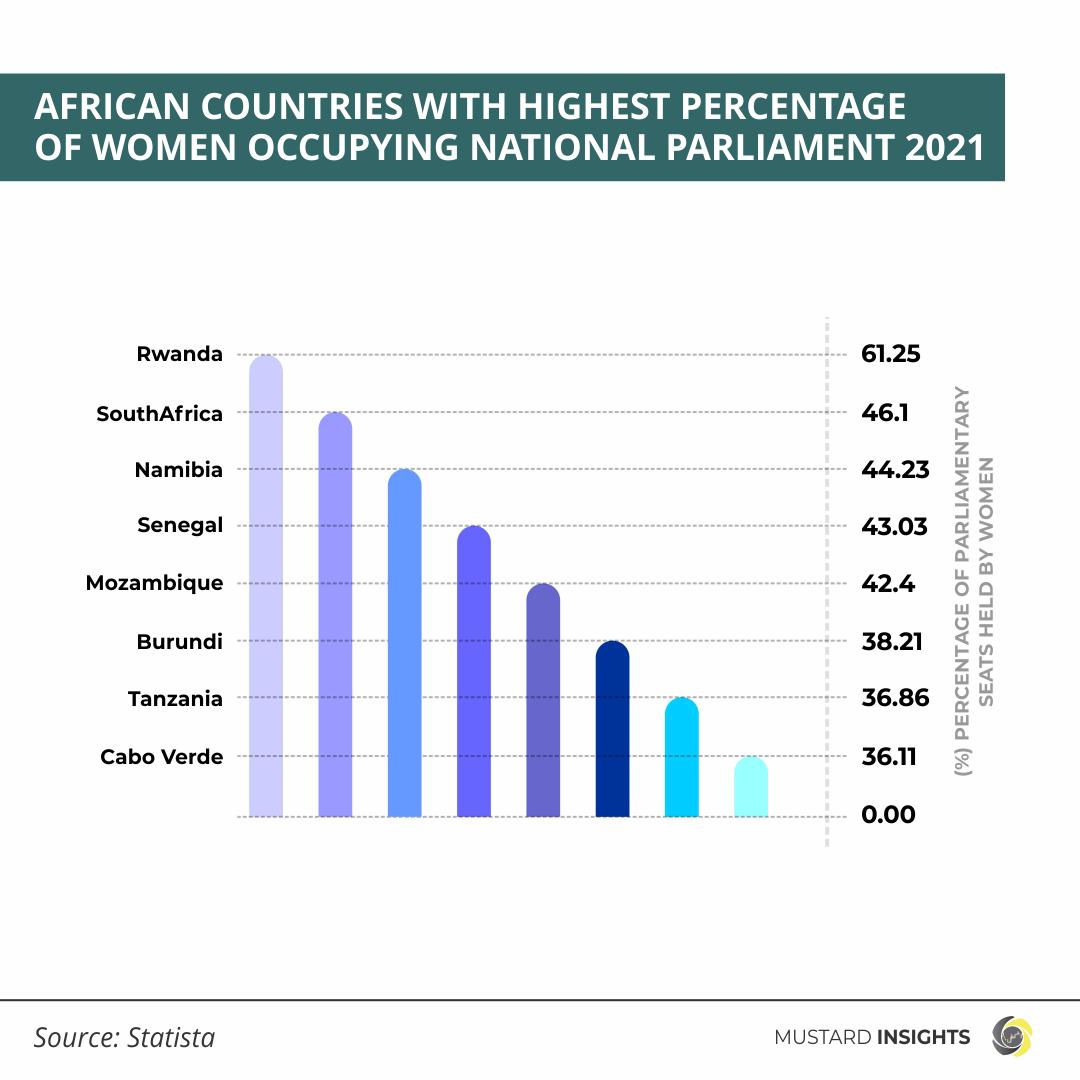The role and impact of women in the hierarchy of human existence is undergoing a paradigm shift as women are getting recognised for talents and leadership skills. The last two decades have seen a steady but significant increase in women representation in national parliament globally.

The role and impact of women in the hierarchy of human existence is undergoing a paradigm shift as women are getting recognized for talents and leadership skills. The last two decades have seen a steady but significant increase in women's representation in national parliament globally.
In Sub-Saharan Africa, women representation in national parliament has grown from 11 percent to 23.6 percent with more women rising up to display strength, wisdom and ingenuity. This is an indicator of strong female participation in politics in Africa.
About 61.25% percent of women hold seats in Rwanda’s parliament. This is the highest in Africa as of 2021. This means in Rwanda, men hold 38.75 percent of seats in parliament, attesting to the fact that Rwanda could have less prejudice against women working in men-dominated spaces. Also, this greater ratio of women to men in parliament ranks first globally even though most of the women occupy seats in the lower house of parliament.
South Africa comes next and ranks second highest African nation in terms of proportion of women occupying parliament seats. Women occupy exactly 46.1% of the nation’s parliament. With the difference of about 1.8%, Namibia comes 3rd place with a percentage of 44.23 women occupying seats in the nation. Senegal and Mozambique make up the rest of the top five countries, with women representation and participation in national parliament above 40 percent.
Including women and their freedom to take part in politics can have a positive influence on gender equality for effective policy-making and solution to issues. According to a research on the Legislative Effectiveness of Women in Congress, the priority assigned to policies is influenced by the gender of the legislator. Also, strong evidence exists showing that with more women being elected into political offices, policy-making emphasizing better quality of life increase in accordance. Also, more policies are considered to address families, women, ethnic and racial minorities.
Other benefits highlighted with increasing women participation in politics are:
- It allows for cross-party working since women are more inclined towards collaborative working.
- It encourages collective input of diverse experience when making decisions since men and women have different bodies of experience.
- It enhances democracy since both men and women consider more gender equal institutions fairer and more democratic.
Thoughts?
We won't share your email address. All fields are required.
